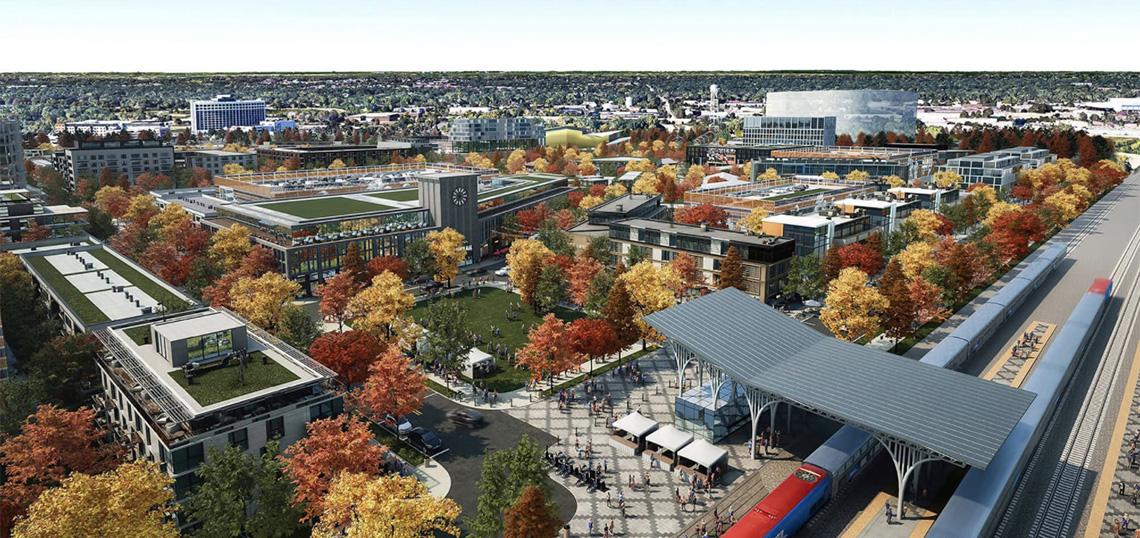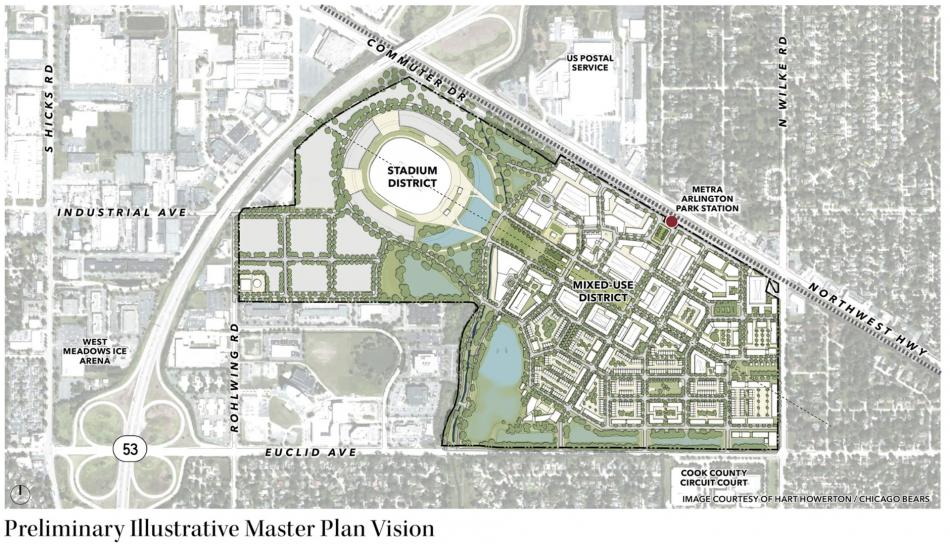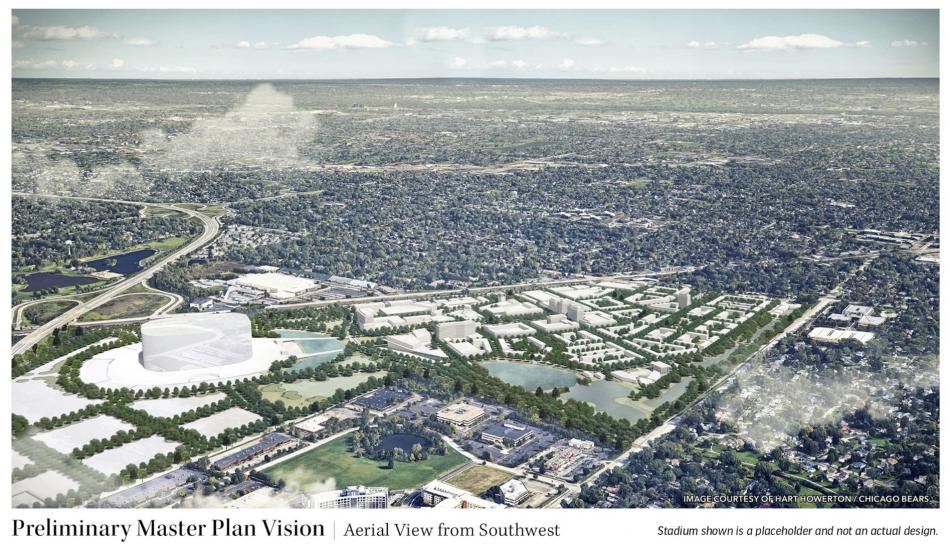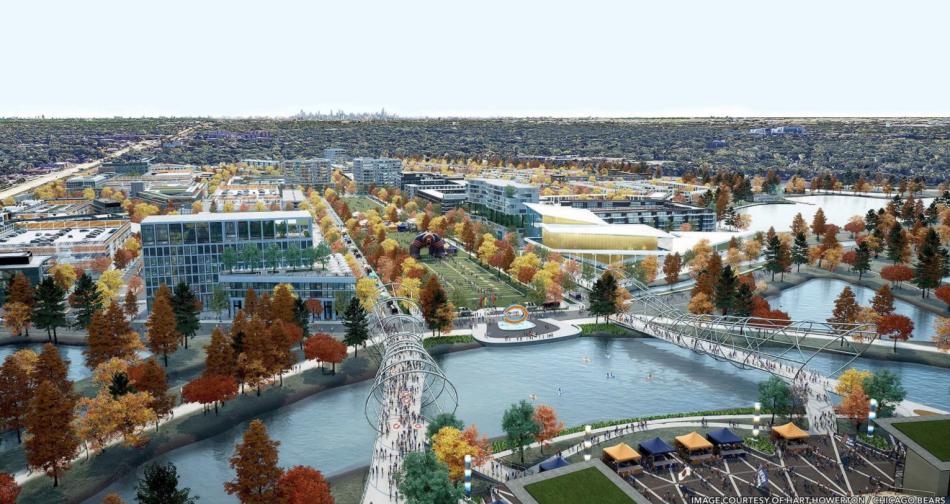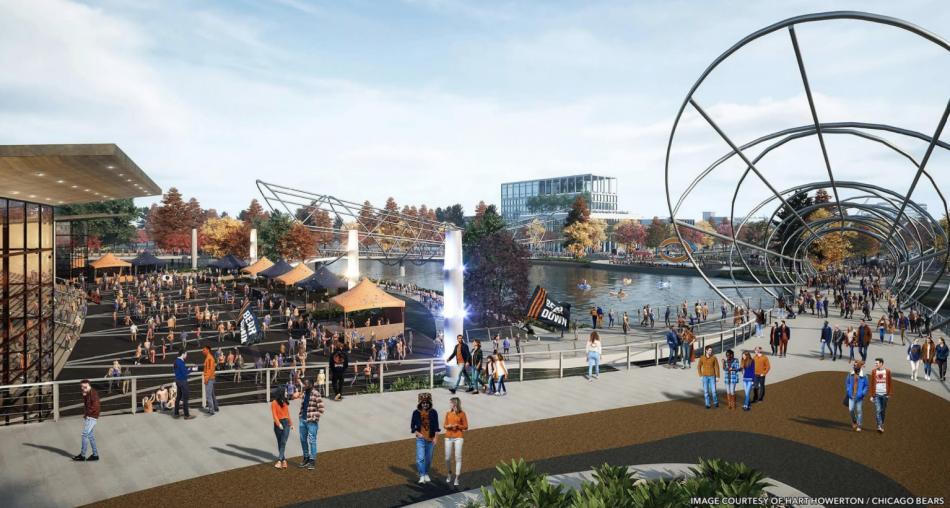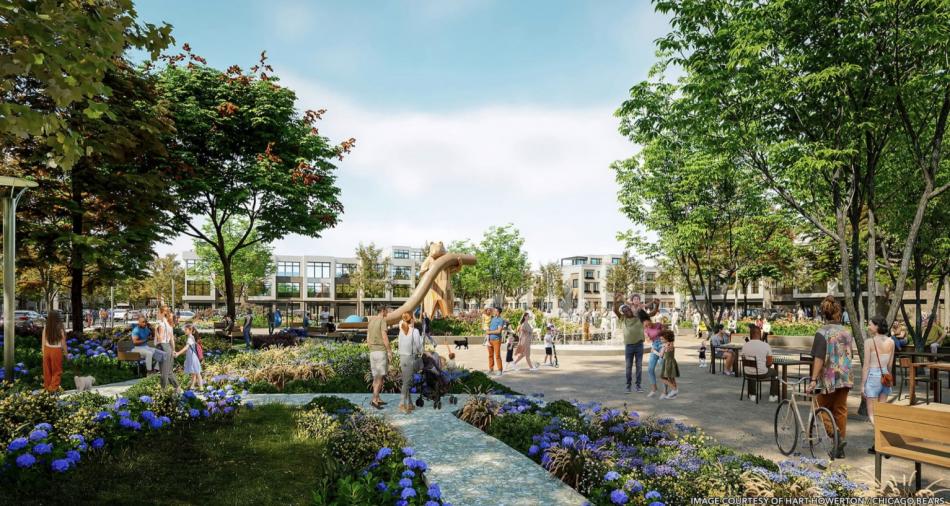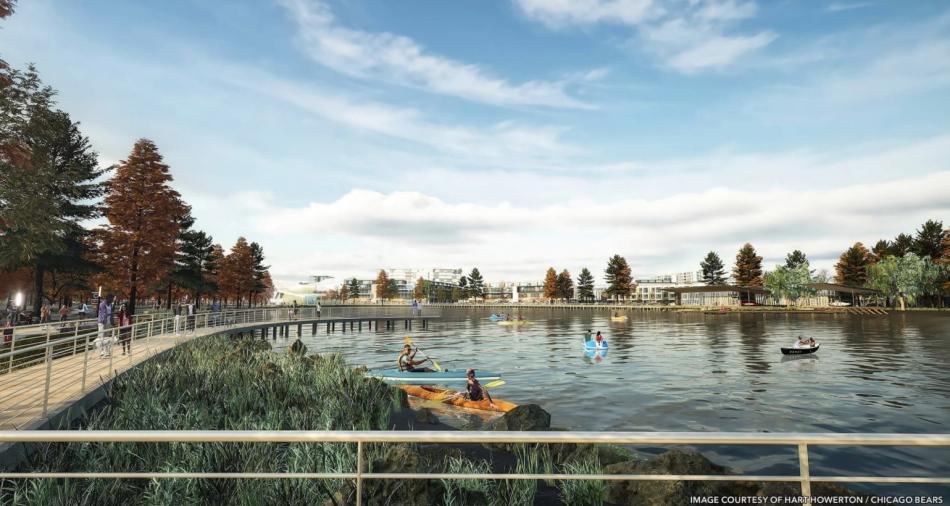The Chicago Bears have announced that they have closed on the Arlington Heights property that is potentially set to become home to a new stadium and mixed-use destination. After signing an agreement for the purchase of the 326-acre site back in September 2021 and revealing their preliminary master plan back in September 2022, this milestone represents the next step in the process towards building a new stadium.
Paying a cool $197 million, the Bears assured that “finalizing the purchase does not guarantee the land will be developed.” According to team officials, there is “still a tremendous amount of due diligence work to be done to determine if constructing an enclosed state-of-the-art stadium and multi-purpose entertainment district is feasible.”
Set to become one of the largest megaprojects of the Midwest, the master plan by Hart Howerton includes a multi-purpose entertainment district anchored by a new, best-in-class stadium that would be enclosed. The aspiration would be to have a caliber of facility that could host events such as the Super Bowl, College Football Playoffs and Final Four.
The stadium’s entertainment district would be complemented by the creation of a further mixed-use district, offering multi-purpose entertainment venues, commercial/retail spaces, and housing that could provide economic benefit to Cook County and the surrounding areas of Illinois. The team envisions the expansive district to potentially include restaurants, office space, hotels, fitness space, new parks and open spaces, and other public realm improvements.
Team officials claim that “possible construction of a stadium-anchored development is projected by analysts to create more than 48,000 jobs, generate $9.4 billion in economic impact for the Chicagoland economy and provide $3.9 billion in new labor income to workers across the region.” The completed development could create almost 10,000 new permanent jobs and generate $1.4 billion in economic impact for Chicagoland.
With all that said, team officials reiterated that they will need financial assistance "to ensure feasibility, including our securing property tax certainty and support for infrastructure commensurate with the public benefits the project will yield to the region. For the development to move forward, and for this effort to be financially feasible, a public-private partnership addressing predictable taxes and necessary infrastructure funding for public uses is essential.”
The official announcement from the team closed by claiming that there has been “no decision that the development of the recently acquired property will occur.” Pending battles with different governmental bodies for the financial assistance they seek and the unknown timeline for the actual project design, a timeline for when the scheme could come to fruition is as clear as mud.




